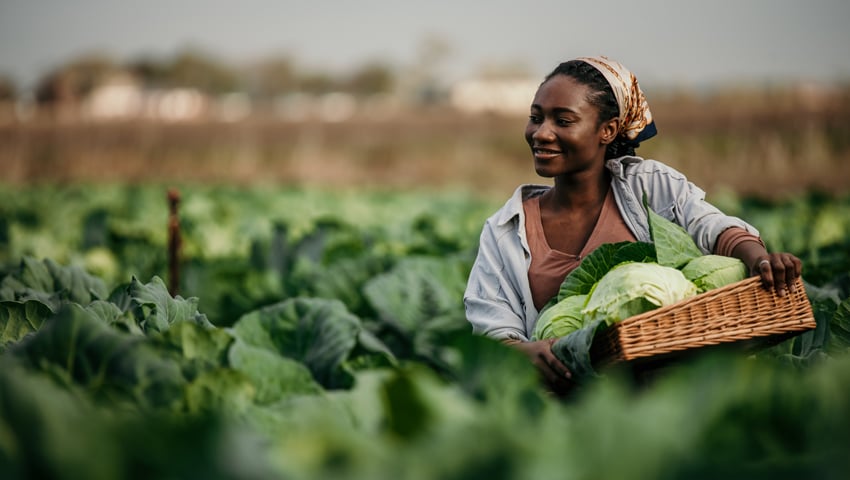Extracts from an article by Sue Pritchard on the Food, Farming and Countryside Commission website
Sue writes: I’M NOT not going to COP28. I’m disinclined to fly to Dubai to spend time in the Green Zone – and, like many others, I’m antsy about this COP being led by, and taking place in, an oil-dependent country whose intentions may not be consistent with the Paris Agreement.
We are far from meeting the legally binding Paris targets, and we will breach 1.5 degrees before the end of this decade. We need urgent, concerted and aligned global actions to mitigate change and adapt to these changing conditions, redoubling and rebalancing efforts for a just transition within and between countries.
But the hard truth is, if COP didn’t exist, we’d need to create it.
So what can we do to fix it?
First, we must rebalance the voices in the room. Last year, there were more corporate lobbyists in Egypt than civil society organisations.
Food systems have a lot of airtime at COP28 – and the food businesses and lobbyists are there in force. This may well be a distraction from talking about fossil fuels in the oil-rich countries of the Middle East, and it also drowns out and distorts the voices for food system change.
It is incredibly hard for citizens and civil society organisations to participate in COPs. With tickets rationed, and flights and accommodations costly, the costs and barriers to joining are too high. Limit the spaces for lobbyists and corporations. Strengthen and subsidise the space for grass roots organisations, especially those from the global south and those representing the voices of future generations, and make sure their voices are central to negotiations, not the window dressing.
Second, we must prioritise actions that take fossil fuels out of the food system. Diets in the global north are essentially fossil fuels on a plate – via production, processing, packaging and transportation.
We need aligned investment in primary production to support farmers and growers transitioning to nature-friendly farming, free from synthetic chemical inputs. Regenerative on-farm practices, restoring nature across the farmed landscape, harnessing biology instead of chemistry, growing more of the healthy food we need, prioritising crops which feed people, not livestock, and reintroducing livestock in planned pasture-fed rotations for fertility-building and ecosystem health.
But ‘Regen Ag’ alone will not shift the food system. Indeed, the focus on farm-based practices must not distract attention from other food system businesses and their responsibilities to change.
Businesses like Bayer and Syngenta – the fertiliser and chemical companies – must now demonstrate how, and how fast, they are reducing and eliminating the harmful climate, nature, and health-damaging products from their portfolios. Redirecting sales of risky products to the global south must be as unacceptable to shareholders as marketing tobacco.
Food businesses must also work on recalibrating their portfolios across the same balanced scorecard of metrics – climate, nature, health and equity – to ensure that their actions on climate do not generate unintended or inequitable consequences and start working towards a more resilient and adaptable future.
Third: follow the money. Sometimes, I read the calls to action and wonder who they are talking to.
They talk about “broken food systems” in dramatic but abstract terms. We rarely discuss who benefits from how the food system is currently organised. It’s time for some plain speaking about the political economy of food. Some businesses are still choosing to risk the health and prosperity of people and the planet for their own profit and interests. I’m encouraged by the campaigns that use the law, shareholder action, and the media to identify these destructive laggards and require them to change.
There is much focus instead on the need to change diets in the global north, discussing how to ‘nudge’ consumers to ‘make healthier choices’ and so on. Blaming ‘the consumer’ must stop.
The diet challenge is huge, structural and systemic – way beyond the individual actions of shoppers, however well-intentioned.
Spending time talking about diet change whilst still wasting precious resources producing and promoting junk is one of the most effective distraction strategies in the playbook.
Food is foundational to all our lives. 40% of countries in the world will have elections in the next 12 months, and many of those countries already experience food shocks and shortages.
Collective global efforts, from international processes like COP to the actions of CEOs and CFOs, boards, shareholders, insurance, re-insurance, private equity and philanthropy, must focus more seriously on food systems and the actions of the international businesses shaping them.
Those of us in the global north must take more responsibility for realigning our own food systems. This means aligning public and private investment behind growing the healthy food we need within our current and future ecological conditions and setting equitable and sustainable parameters for trade that enable all countries to thrive.
Food systems have a place in the sun at COP28. Let’s make good use of it.
Read the whole article on the Food, Farming and Countryside Commission website
